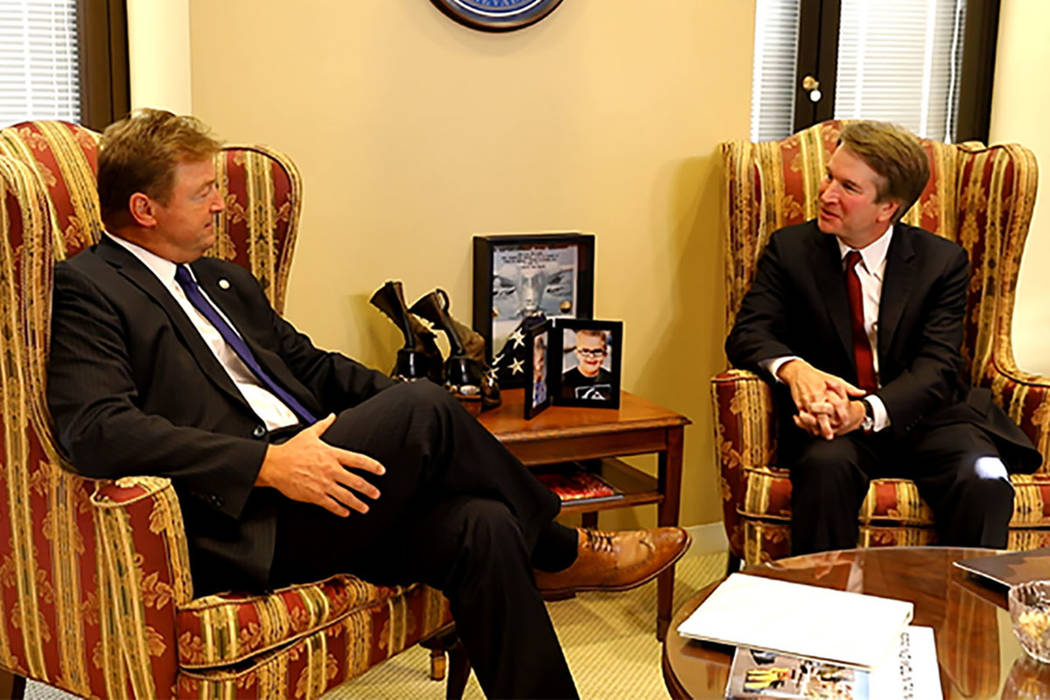
Brett Kavanaugh is going to be confirmed as the next Supreme Court justice.
He has more of a defined approach to the Constitution than Justice Anthony Kennedy, but it’s not possible to say how he’d rule in a case seeking to overturn Roe v. Wade. That’s all according to Thomas Jedding, senior legal fellow with the free-market Heritage Foundation.
Jedding said the political left’s hyperventilating about Kavanaugh’s nomination reveals an ignorance about the proper role of the judiciary.
“Could it possibly be that the appointment of one judge determines all of that?” said Jipping, referring to accusations that Kavanaugh’s appointment puts abortion, health care and civil rights at risk. “It’s like the fate of the world rests on this one appointment. The truth of the matter is it doesn’t. He’s been nominated to be a judge, not the emperor of the universe or something. That kind of rhetoric about that whole laundry list of issues is really misleading to many Americans.”
The judicial system is “supposed to be a certain way, and it’s more modest and more defined than what the left is trying to portray it to be,” said Jipping. “That’s really what the debate over Brett Kavanaugh’s nomination is about. It’s not really him. It’s how much power judges, in general, ought to have. And I think President Trump is appointing judges who are more consistent with the way our system is designed to be.”
Jipping pushed back on the notion that Kavanaugh has made up his mind on certain cases, such as Roe v. Wade. “Anyone who is telling you today that they know how Brett Kavanaugh is going to vote or how the Supreme Court is going to treat that issue 10, 20, 30 years from now is not telling you the truth.
“Since Roe v. Wade, the Supreme Court has decided more than 5,000 cases with full opinions and full oral arguments, and only the tiniest fraction had anything to do with abortion. The way to evaluate a judge or judicial nominee is their impartiality and faithfulness to the Constitution across the board, not by selecting one litmus test issue and just finding out how a judge will vote on that one issue.”
It’s important that future judges don’t share how they feel on certain cases, argued Jipping.
“If you go before a judge, do you want that judge to be impartial toward your case or do you want to know that that judge has already taken positions and made commitments on the issues that you’ve got to have in the case that you’re bringing to that court?” he said. “Judges need to be impartial. There’s nothing more important than that when it comes to the judiciary.”
A judge’s philosophy and commitment to interpret the Constitution as written are what is most important, according to Jipping. He gave Kavanaugh high marks, in that regard, especially compared to the justice he would replace.
“I would say Judge Kavanaugh is more of a self-determined originalist, in the sense of having a defined approach to what he does with the Constitution and statutes,” said Jipping. “Justice Kennedy’s was relatively undefined. He would be in a liberal majority or a conservative majority on different kinds of issues. It was hard to know whether he had a defined approach that he would apply across the board. I think Judge Kavanaugh does.
“You take the words for what they already mean. Judges aren’t supposed to pour meaning into the Constitution to make it mean something else. I think that’s kind of what defines his approach to the law.
Jipping predicted that Kavanaugh “will be confirmed, probably with a few Democrats supporting him.”
Victor Joecks is a columnist for the Las Vegas Review-Journal.